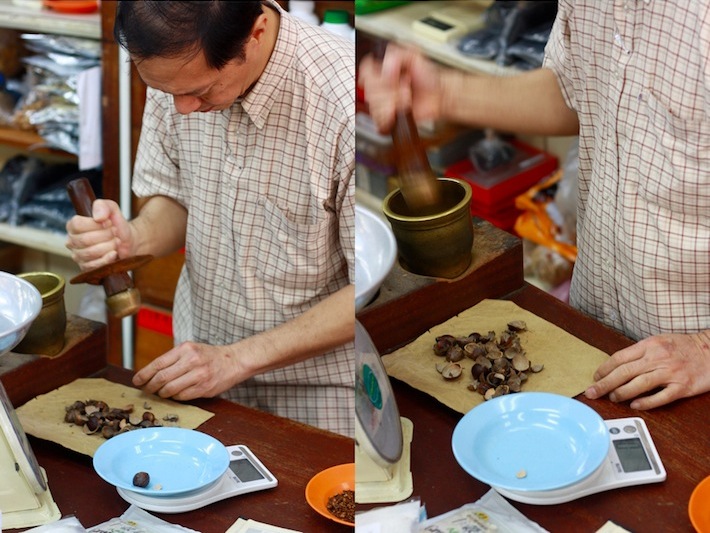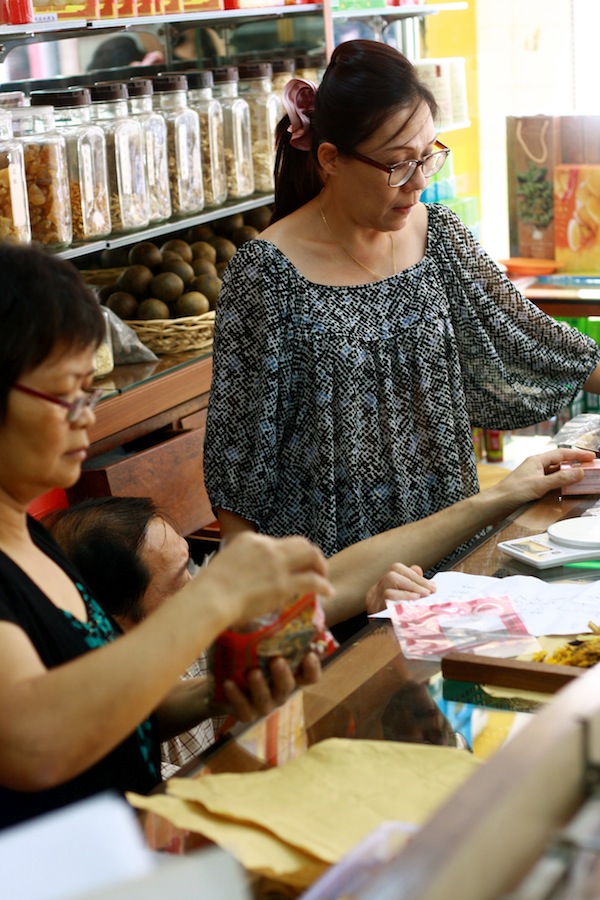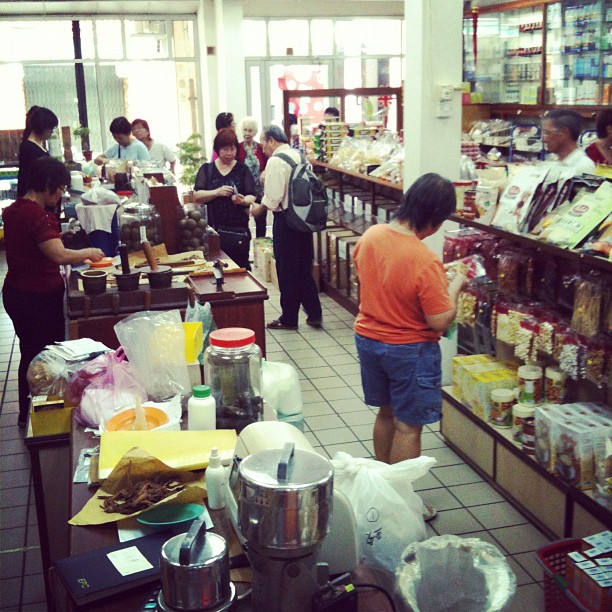Prevention is the cure.
A relatively new concept in Western society. An ancient tradition in Chinese culture.
The goal of Traditional Chinese Medicine is to maintain health through a balance of both body and mind; to bring the forces of Yin & Yang into equilibrium. That may seem abstract, magical, alternative. But as foreign as the ideas of Chinese medicine may sound, its core practice – Chinese Herbal Medicine – is simply about strengthening the overall health of the body with the power of nutritious, healing herbs (and spices).
Traditional Chinese Medicine is the foundation of an understanding that wasn’t always as obvious as it is now - by eating healthy, and incorporating the benefits of herbs & spices into your diet, you can prevent sickness and disease.
A philosophy and practice for the past 80 years, and three generations of sons, at Cheng Woh Medical Hall – a Chinese herbal shop located in the UNESCO World Heritage site of George Town in Penang.
Black & white images courtesy of Cheng Woh
Reduce anxiety, strengthen
bones, protect the heart and lungs, detoxify the liver, increase
circulation, deter memory loss, improve digestion...
A
few of the many assertions on paper signs amidst dozens of baskets
containing Chinese herbal mixes for making soups, desserts, and teas.
Signs that draw your attention upon entering the unassuming shophouse
of Cheng Woh Medical Hall.
On the other side of the herbal shop, a wall of a hundred wooden drawers – a feature of old Chinese medical halls – each marked with Chinese characters denoting the herbs stored inside. Some drawers also hold familiar spices like cinnamon (cassia) and star anise, as well as cloves locally grown in Penang.
To the right of the wooden drawers, a large mirror hangs on the wall, obscured by shelves lined with glass jars revealing Chinese herbs of earthy colors and in the shapes of roots, berries, tree bark, and nuts. Herbs like ginseng 人参, ginkgo, lotus seeds and goji berries. Sitting next to the jars are two wicker baskets, both holding the round, dark, dried fruit of luo han kuo 罗汉果 (known as monk fruit in the West).
Running parallel with the wall of
drawers is a long, glass display case that connects to a wooden counter
where the tools of the herbal shop sit - a scale, a butcher knife
slicer, and three mortar & pestles.
Lee
Tak Tsong, the soft-spoken grandson of the late founder of Cheng Woh
Medical Hall, opens one of the drawers behind him and grabs a handful of
fresh Penang nutmegs
and places them in a pile on the wooden counter. With a pestle, he cracks open the shells,
and then places the hard seeds into a copper mortar and smashes them
into powder. The fresh, tropical scent of nutmeg fills the space as he
listens intently to a customer he knows well. A customer whose late
father and grandfather were regulars of Cheng Woh.
Mr. Lee knows the man’s family history, his medical history, his lifestyle. He builds an important trust with all his customers to gain a better understanding of what Chinese herbs can help each of them live healthier lives.
Mr. Lee knows the man’s family history, his medical history, his lifestyle. He builds an important trust with all his customers to gain a better understanding of what Chinese herbs can help each of them live healthier lives.
The older woman slowly stands as Mei Yap finishes the mix of herbs, and hands her the bag. They might be a family recipe for a daily chicken soup. Or maybe a standard mix of herbs for suppressing a cough or soothing joint pain. Any condition more serious and Mr. Lee would refer her to a licensed doctor for treatment.
In the back corner of the shop, two ladies work in silence, one on each side of a table cluttered with boxes of Chinese herbs. Some of the herbs have arrived from the same, loyal suppliers in China who have worked directly with the shop for almost its entire 80 year history.
Both ladies move quickly, weighing small batches of herbs, sorting them in piles, then packing them in plastic bags marked with Cheng Woh’s label for Liu Wei Tang 六味汤– a general health improvement soup that is cooked with chicken or pork ribs.
Cheng Woh Medical Hall is a bustle of activity throughout the day, much as it has been since opening in 1933.
Many of the original Chinese herbal recipes are still produced and sold in the shop, while others Mr. Lee has researched, developed, and introduced to his customers over the past few decades. Cheng Woh now carries over 100 high quality Chinese herbal recipes for soups, desserts, and teas, mainly to provide the additional nutrients needed to strengthen the overall health of the body and to prevent disease.
In our next post, we will explore some of the more common Chinese herbs in use today.
Image courtesy of Cheng Woh











